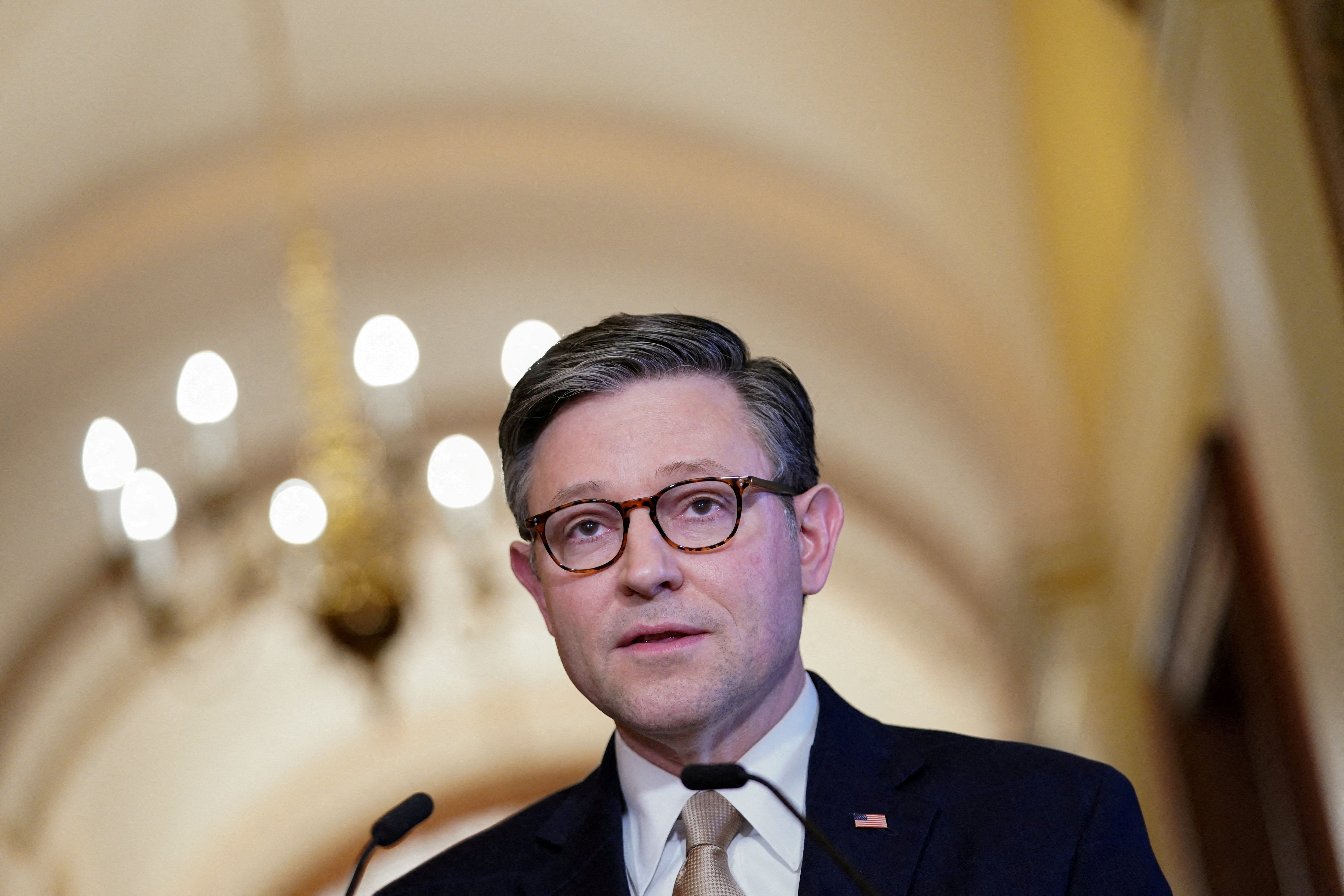House Republicans are hiding from anything that would force them to vote one way or the other on President Donald Trump's controversial tariffs, wrote the conservative Wall Street Journal editorial board in an analysis published on Wednesday.
Trump enacted the tariffs, which have caused a firestorm of economic uncertainty and selloffs, under wide-ranging powers granted by Congress to let presidents declare emergencies — and they have the power to pare that authority back. But GOP leaders have no interest in being put on the spot on that, the board wrote.
"The National Emergencies Act provides fast-track procedures for Congress to end a presidential emergency," wrote the board. "New York Democrat Gregory Meeks introduced a resolution to terminate Mr. Trump’s emergency on March 6 and he intended to force a floor vote this month. This would force Republicans to vote on the record for supporting Mr. Trump’s tariffs, which are a tax increase. However, Republicans inserted a provision in a rule governing debate on their government funding bill that would block consideration of Mr. Meeks’ resolution for the rest of the year."
ALSO READ: ‘I miss lynch mobs’: The secretary of retribution's followers are getting impatient
The GOP, for their part, argue that Democratic lawmakers blocked another measure the GOP passed that would have ended an emergency declaration former President Joe Biden used to cancel student debt — but, the board noted, this isn't actually a stance on Trump's policy.
"GOP House leaders are no doubt trying to protect Members in swing districts where Mr. Trump’s tariffs are unpopular. An Emerson College poll this week reported that 53% of voters say Mr. Trump’s tariffs will hurt the economy, versus 37% who said they would help it. Hispanics by a margin of two-to-one said tariffs would hurt," wrote the board — a result in line with a new CNN poll showing even Trump voters growing skeptical. "Beyond the MAGA echo chamber, Mr. Trump’s tariffs are unpopular. But businesses don’t want to challenge them in court because they are afraid of retaliation. Nor do Democratic state Attorneys General, perhaps because they want to preserve a future Democratic President’s flexibility under the law to declare climate an emergency to impose carbon tariffs."
At the end of the day, the board concluded, "While House Republicans can run from a vote, they can’t hide from voters in 2026 who may not find Mr. Trump’s tariffs beautiful."
